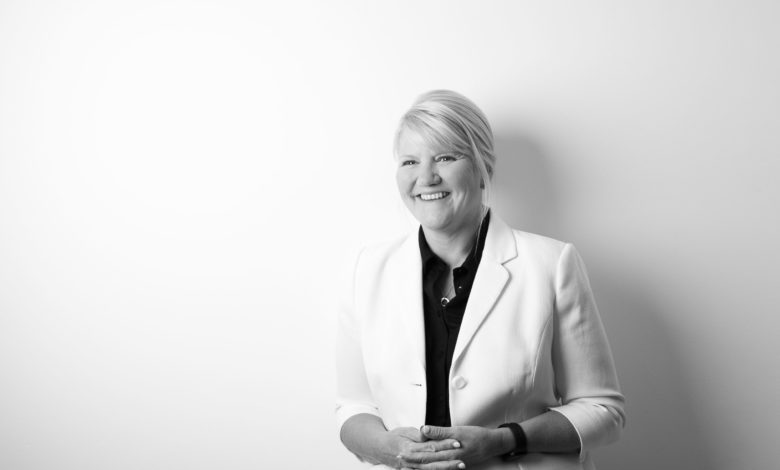Equality in hospitality should still be a priority
Is the industry fully embracing female talent? Not according to the latest industry figures, which show we still have some way to go, comments Deborah Heather, Director, Quality in Tourism.

When it comes to women in the hospitality industry, recent numbers show just 17% of professional chefs in the UK are female, while across the sector, one in four women are in the most junior roles available, and just over half are in part-time positions. The national 11,000-strong survey also revealed the disparity between male and female “deskless workers”, with 71% of female hospitality workers considering quitting.
The start of 2022 presented an opportunity to begin a much needed and sustained shift in organisations’ priorities following the disruption of the pandemic. That was before businesses had to deal with further setbacks as the year progressed, rising energy costs and the increase in the general cost of living being two major challenges. Nevertheless, redressing the balance and getting employee engagement and wellbeing right for everyone should remain a key priority, as women’s experiences consistently fall short across the board. In a nutshell, there needs to be an urgent, proportional and appropriate response. We’re still finding that a plethora of women with extremely valuable skills are leaving the industry as they feel that senior positions are unattainable.
The truth is not just that we need women at the top to drive the sector, but also that progress in women’s leadership won’t happen overnight. The case for balancing the power equation in leadership has never been clearer: elevating women in decision-making, benefits businesses. According to Women Deliver, the leading global advocate that champions gender equality and the health and rights of girls and women, the evidence speaks for itself:
- When women hold more executive leadership positions, their companies are more profitable: companies in the top-quartile for gender diversity on executive teams are 21% more likely to outperform the national average.
- When women are meaningfully represented and engaged in leadership bodies — such as legislatures, courts, executive boards, community councils — laws, rulings, and decisions are more likely to be inclusive, representative, and take diverse views into account.
- Women’s leadership within households, including decision-making over land and household income, improves access to education and healthcare for their families.
My own experience was similar. I had to push harder, work smarter and challenge the status quo more than my male counterparts, to prove that I deserved a senior position. Yet when I attained them, I left a string of more profitable, diverse, and engaged operations in my wake.
As a woman with over 25 years’ industry experience and a graduate of the Cornell University General Managers program, it is hard to believe that credentials and skills still don’t enable access to a level playing field. As we’ve been saying for some time, it’s imperative that the industry moves with the times. We need to ensure we are doing all we can to afford women the same opportunities as men, during a time when we need valuable talent the most to ensure we get back on our feet.
The face of future management
While many women are employed in management roles, senior positions which are generally well paid and more flexible tend to be occupied by men. One woman I have met who is championing much-needed change in the industry is Kasia Szczechowicz, general manager at Hampton by Hilton High Wycombe, managed by Legacy Hotels and Resorts. As the youngest GM in the Legacy group, Kasia headed up the opening of the 150-bed, £21m hotel in June 2021. She’s someone I’ve thoroughly enjoyed interviewing:
What is your background? What made you get into hotel management & hospitality?
I’m a qualified Architect Engineer and finished my Degree in Urban and Rural Landscape Industry. You would ask, how come I became a hotelier? Personal life decisions brought me to the UK. I don’t regret any of my career choices as they led me to where I am now. I started in the industry as a pot washer and then became a hotel waiter. It was my GM at the time who gave me some responsibilities and said that I’d be a GM one day, which planted the inspiration that spurred me on to become one. I worked my way to front of house then took an operations role at RBH (Holiday Inn Maidenhead and HI Express) eight years ago, before grabbing my first GM role at Marriott Group. Nothing gives you more of a real, practical sense of how each aspect of a hotel business operates, than working it. The attitude of a GM is now more of an operator role. Many GMs have left the industry as they weren’t hands on, couldn’t cope operationally or adapt to the changes that the pandemic brought.
I’ve been lucky to have had lots of experience of travelling around the UK at multiple hotels, learning what they did differently. It has given me a unique opportunity to use this insight to find ways to innovate, to see where we can improve things even further for staff and guests alike.
What support have you been given to help you reach your potential?
There wasn’t really any support from outside my friends and family. It is all through self-belief, determination and hard work. As the adage goes, nothing is impossible – you really can achieve everything you want if you want it enough. My mindset is that giving 100% is average; you always need to go that extra mile to prove more than is expected from you. My father brought that culture to my life and he’s always been my role model.
My parents are from a generation where it would be expected that the mother should stay at home; they struggled to understand how and why the roles would be switched. My husband took over much of the parenting duties when our children were younger so I was able to have the career I have. Things are changing in the home, but I still feel much more needs to be done in the workplace.
You’re passionate about women in the workplace and providing them with the tools & support to be able to thrive. What kind of changes would you like to see made in the future, either in your organisation specifically or across the industry?
It’s now very much about work/life blend rather than balance, a notion which has become increasingly outdated, not to mention unrealistic. This realisation has always been there but the catalyst for change has been the pandemic. It’s no longer about evenly distributing the weight. It’s about discovering your perfect mix, not someone else’s – one that works for you. More workplaces are beginning to understand this and adapt. It may sound clichéd, but I want my team to be happy, people who want to be here.
Across the industry, I’d like to see positions created that will allow both women and men the flexibility around home and care commitments. We also need more genderless roles so that for example, women can take any position they want in a hotel.
We need to encourage the mindset that being a great GM isn’t about being average and carrying out the bare minimum, but by the same token, we don’t need 20 years of experience in the role to prove we can be better than any other experienced GM. It’s not about gender, age, or experience… simply, it’s about showing passion, loyalty and dedication to prove that the job can be done.
What changes are you starting to see through your role?
Bringing empathy to the role is important and allows me to connect with my team. Communication and creating a fair culture are also key. Pay should reflect the job, irrespective of age.
I allow the team where appropriate to work from home, which I appreciate isn’t possible for those in a guest-facing role, but I don’t think this approach is normal in the industry. I’m of the approach that I don’t mind where the job is done, just as long as it gets done. The Sales Director works from home; she doesn’t need to be in the office. She has kids, and the arrangements help her to be more efficient. Enabling people to have the flexibility to do their job often means you’re getting the best from them, so for me, it’s win-win.
I’m also aware that as someone who is still fairly young, I’m leading a young generation so I’m responsible for driving change for a more inclusive culture, one they can aspire to be part of.
Generally, we need to be more open to innovation and listen to young people. They are growing up with different technology, they want to be quicker and faster than previous generations.
What is the plan for the next 5 years? What do you want to achieve?
To go higher. There’s still plenty to achieve! I want to prove to the brand and owners that I can deliver what I was hired for and challenge myself to oversee bigger projects. Just to continue working hard in a senior management role to help other hotels grow and perform in any aspects of their operational challenges and supporting brand development operational performance across UK industry and possibly Europe.
I would love to open more hotels for the group. Our next hotel is planned for Rochdale, where work will start after winter, with a third opening a few months later. Our ambition is to develop the blueprint on how to open hotels. We, along with everyone else, have weathered an extremely turbulent storm these past couple of years, and now I’m excited for the future in what we can achieve. I can’t see myself going elsewhere. There’s nowhere else I’d rather be than here!









